Condenser microphones are very versatile, and they are primarily used in recording studios due to their high sensitivity and excellent audio quality. These mics are not typically used for live situations, but is it possible to use a condenser mic for live purposes if you want to utilize their superior audio quality? Let’s find out!
Condenser mics can be used live. Condensers are very sensitive and can be fragile, which makes them challenging to use live, but with the right microphone and the right set of live sound skills, condenser mics can be very useful for live performances, particularly those that are made for live use.
Condenser mics are not generally designed for live use, as they are highly sensitive and can be very challenging to control in a live environment.
Let’s take the time to learn more about condenser microphones to find out how well they work for live situations, how to make the most of a condenser for live purposes, and what some of the challenges are when using these mics in this way.
Can You Use A Condenser Mic For Live Performances?
Condenser microphones are typically used in recording situations, as this type of microphone is very sensitive to audio and very susceptible to damage as well.
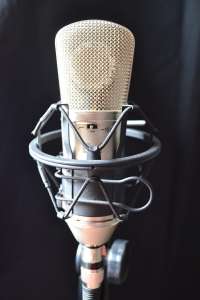
This microphone type is incredibly sensitive to audio input, which means that condensers tend to pick up unwanted outside sounds and noises, which can make them challenging to use in live environments.
The fragile nature of condenser microphones is due to the way the internal diaphragm is designed. This fragility means that condensers are not often used live as live mics are often dropped, bumped, or otherwise misused, which may cause severe damage to a delicate condenser microphone.
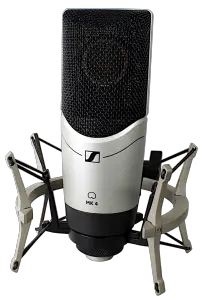
However, these microphones do offer superior audio quality and excellent dynamic range, and they are fantastic for both instruments and voices, so is it possible to use a mic like this in a live situation to make the most of these qualities?
The truth is that while condenser microphones are ideal for recording situations, they can be used for live performances as well.
The secret for using a condenser mic live is to have a good understanding of the microphone that you are using, including its strengths and weaknesses, as well as its limitations and the requirements that the microphone has for optimum performance.
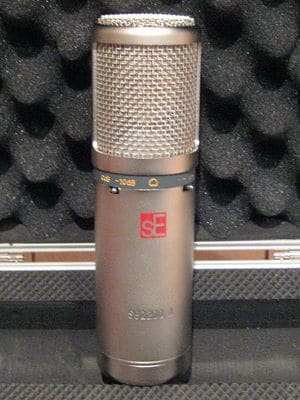
If you understand your particular microphone and how to use it, you can use it live without much trouble, so long as you also understand how to live mix your particular microphone as well.
It is possible to use a condenser mic live, but it is much more challenging than using a dynamic microphone for the same purpose. Let’s explore some of the major benefits that come along with using a condenser microphone for live performances.
The Benefits Of Using A Condenser Mic Live
You can use a condenser microphone for live situations if you know how to use the microphone well. If you can use a condenser well, there are some distinct benefits that come along with using this type of microphone for live performances.
Condenser microphones are very sensitive, but they also have an excellent dynamic range. This means that if you are using the mic for a vocalist who possesses a great voice with a wide range and good control, using a condenser mic will capture all of the subtleties of that voice, resulting in a far better and more nuanced vocal performance than would be possible with other mic types.
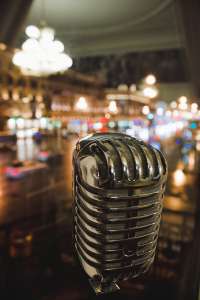
The sensitivity o this type of microphone can be an advantage when used live, even though it may be difficult to control. The sensitivity of a condenser can be used to capture very clear, very usable audio from quieter instruments that cannot be plugged in.
For example, a performance with a classical acoustic guitar that has no internal pickup will require a microphone to output the sound from the stage. Using a condenser mic for this purpose is ideal because this type of instrument is not particularly, but it is very nuanced and dynamic.
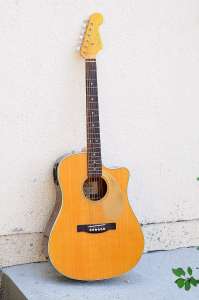
Using a condenser for this purpose will capture all of the nuances of the instrument performance and provide the sensitivity required to output the sound in a usable way with optimized levels as well.
These examples should highlight the various advantages that come with using a condenser mic for live situations, but there are some drawbacks that come with using this type of mic in this way as well.
The Challenges Of Using A Condenser Mic Live
Condenser microphones can be wonderfully useful for live performances, but using this type of mic in this way can also be extremely challenging without experience and live sound skills.
These challenges arise because condenser mics are so sensitive and fragile, and they require phantom power to be used. The fact that condensers require phantom power to operate means that your mixer must be able to supply power. If not, you cannot use a condenser live.
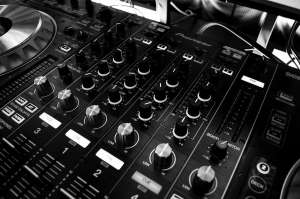
(There are wireless mics that do not need phantom power – you can learn more here).
Aside from the power requirements, condenser mics are challenging because they are so sensitive to sound input. This increases the risk of feedback loops and usually results in the mic picking up some form of unwanted sound, noise, or frequency that must be isolated or cut from the mix.
Condenser mics are also very fragile, which means that they cannot be dropped or mishandled in any way, making them less ideal for stage performances, especially when used by singers who move around with the microphone.
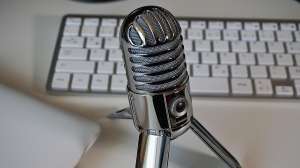
All of this means that using a condenser microphone for a live performance requires the proper live sound skills to use the microphone well. The way a condenser mic is mixed must be well controlled to prevent feedback and unwanted noise, and they must be positioned correctly to prevent the same issues.
Using the frequency output from this type of mic well is also essential for getting a good sound from it; otherwise, condenser mics can sound overbearing or muddy during live performances.
Learn to handle your condenser mic well and learn the skills required for getting a good sound from it, and a condenser can be an excellent microphone to use for live situations.
Use The Right Condenser Microphone
We have discussed the significant pros and cons of using condenser mics for live performances, but a final consideration that must be made is the type of condenser microphone that is used, especially for live situations.
There is a myriad of condenser microphones available on the market right now, so we will not mention specific brands for the sake of time, but we must briefly consider the microphone type to get the most from a live-use condenser mic.
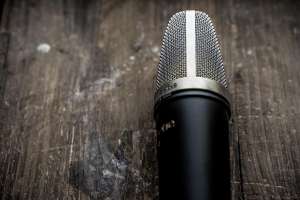
There are modern condenser microphones that are specifically designed for live use. This is always the best type of condenser to use live. If you do not have access to a live-use condenser, always be sure to use a condenser with a unidirectional cardioid polar pattern.
This type of condenser is much easier to use and produces far fewer problems than other types of condenser microphones when used on stage or in a live performance setting.
Conclusion
Condenser microphones can be successfully used in live situations, but they do require a good understanding of this type of mic and good live sound skills to use well. If you do not possess these skills or understanding, it is better to use dynamic microphones instead.
If you do understand your condenser well, and if you have the right skill set, then using a condenser live can be excellent and produce wonderful sound quality that no dynamic microphone can match, even though it is difficult to accomplish.
If you need to know which XLR cables support phantom power, you can find out here.
